Tim Macpherson and Steve Murphy report on the latest developments in the campaign for a recreational fishery and what it means for the future of this amazing fish and for anglers in the UK.
Up until 2015 there was very little evidence of Atlantic bluefin tuna in Cornish waters but from then onwards there does seem to have been a quantum shift in numbers of these wonderful game fish.
A campaign - Atlantic Bluefin Tuna UK - headed by recreational sea angler Steve Murphy has been working with the Angling Trust, charter skippers, clubs and anglers to lobby for the introduction of a recreational fishery in the UK.
By the early 2000’s, Atlantic Bluefin stocks were collapsing due to decades of commercial overfishing. In 2007 the International Commission for the Conservation of Atlantic Tuna (ICCAT) finally acted with a 15-year recovery program that slashed quotas and ramped up enforcement. Stocks recovered and quotas were gradually increased to 38,350 tonnes in 2020, nearly three times the ‘recovery’ level of 2011.
This recovery has been repeatedly documented in comprehensive ICCAT stock assessments, is acknowledged by conservation bodies such as the WWF, and is reflected in the IUCN’s (International Union for the Conservation of Nature) improved status granted for the large (90%+ of the total) Eastern Atlantic/Mediterranean stock in 2015.
In 2010, the IUCN rated Atlantic bluefin globally as ‘endangered’. As early as 2015 this was improved by two notches to ‘Near Threatened’ for that crucial 90%+ of the stock.
In the autumn of 2020, the IUCN reviewed the global stock status again and the results should be published in 2021. It is highly likely that this will result in a status at least two notches better the 2011 ‘endangered’ status, marking how far we have come, and consigning the already outdated ‘endangered’ status to history. The recovery in Atlantic bluefin is a genuine conservation success story, with the caveat that the precise extent of the recovery is subject to some uncertainty given gaps that remain in some of the data available.
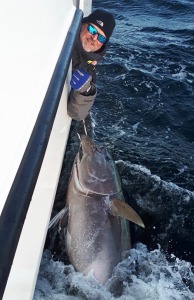
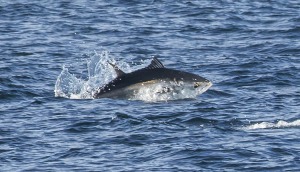
ICCAT and quota for the UK
The UK has now obtained a small quota for Atlantic bluefin – this is a result of the UK leaving the EU and 0.25% of the quota they held being transferred to the UK. It is important to note that this DOES NOT mean that the prohibition on UK anglers deliberately targeting Bluefin is removed. To operate Any kind of fishery the UK must SPECIFICALLY authorise such a fishery and notify ICCAT of those intentions in the ‘annual fishing plan’ they are required to submit by 15th February each year.
For 2021 DEFRA have indicated (and this will be confirmed when the plans are published by ICCAT later in March), that it will NOT be allocating quota either for recreational angling (required EVEN for a Live Release fishery to account for possibly low mortality levels), or commercial exploitation. However, what they have done is to give notice of their intention to possibly apply quota to a range of ‘research fishery’ options, such as the ‘CHART’ programs operated in several other countries for a number of years.
Recreational quota in 2021?
In order to comply with ICCAT’s global rules on recreational angling, the UK would have to run a license scheme to ensure the fishing was strictly controlled. This means licensing participants and to do this a small legislative adjustment to UK fisheries regulations is required and it would not be possible to get this through Parliament before the start of the Atlantic bluefin season in the late summer.
In addition to this a consultation process about the longer-term management strategy for Atlantic bluefin is about to start and there was, we presume, a desire not to prejudice that process by rushing to fully open any kind of fishery. Based on the tortuous progress of this project to create a recreational fishery, and not allow commercial concerns to swallow up all the quota (something which is very unlikely) Bluefin Tuna UK campaign along with the Angling Trust, the PBA and other stakeholders will get fully involved in this process.
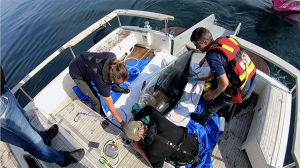
So, what does this quota represent in reality?
Well, commercial fisheries obviously kill every fish they take, by definition. In contrast, recreational live release fisheries work on the basis of a ‘mortality quota’, to account for the low level of mortalities that can occur in the course of that fishery.
Multiple research programs replicating recreational fishery practices and protocols have shown that this mortality rate can be kept 5% or lower. This is a very effective way of leveraging limited amounts of quota into economic benefits for coastal communities, and large numbers of capture and release events that facilitate valuable scientific research. If we look at a reasonable assumption as to a UK CHART program along the lines of the Irish, Danish and Swedish programs operated since 2017, we can get a sense of the level of mortality, (i.e. UK Quota usage) that would occur.
25 Vessels, operating with ‘Catch per unit of effort’ levels similar to other programs, over a three-month season, could generate in the order of 230-250 capture, tag and release events. Using even a pessimistic 5% estimated rate, mortalities in this program would amount to around 2 tonnes, (of the UK’s 45-50t), which equates to just 0.005% of the total Global Quota for Atlantic Bluefin in 2021.
It has effectively Zero bearing upon the global health of the stock.
As stated earlier, with no recreational fishery authorised, UK anglers are still prohibited from targeting Atlantic Bluefin in a fully-fledged fishery for 2021. However, the good news is that should the UK Government approve the ‘CHART’ program for this year, specifically authorised, licensed and trained Charter skippers and their vessels will be permitted to take paying anglers out to catch up Bluefin as part of this program. The stakeholders proposal for 2021 would provide many hundreds of Charter opportunities for anglers to get out in a professional, managed research fishery and experience these amazing fish whilst contributing to our scientific understanding of the species.
CHART Tagging programmes
CHART is an acronym for CatcH And Release Tagging. It is a programme which involves recreational anglers being deployed upon specifically licensed and authorised charter vessels to catch and tag bluefin tuna in a controlled, regulated environment.
Since 2018 DEFRA have been working closely with scientists from Exeter University on a tagging programme, called ThunnusUK. This programme involved just 1-2 contracted charter skipper from very few south western ports to tag small numbers of bluefin using hi tech, high-cost satellite tags. CEFAS, the Governments scientific research arm, has recognised that a CHART program would complement that operation answering other important questions that a narrow PSAT program alone cannot do.
The operational details of a UK CHART programme will be finalised by the end of March and if the green light is given by the Minister it would likely operate from mid August to mid November 2021. Initial discussions have centred around the South and South West of England, but Welsh, Scottish and Northern Irish stakeholders have expressed interest in participating and have approached DEFRA to join any such program.
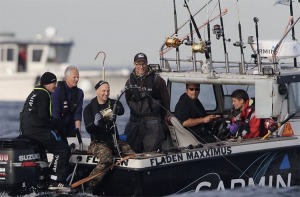
The programme
ICCAT and DEFRA regulations will require a closely managed set of rules and regulations for any CHART program. It will not be a ‘free for all’, it is after all a Research Program first and foremost. The plan will include clear guidelines on gear, skipper requirements, confirmation of the season (likely to be August to November), licensing criteria, reporting obligations and protocols for catching up and then managing the recovery of the fish boat side.
If a program is approved in April, ‘invitations to tender’ will be issued sometime in April-May so charter skippers can apply.
Skippers applying would be required to attend training and workshops on tagging, handling recovery, and fishing practices. Approved skippers would be allowed to take out paying customers once the program gets underway. Skippers will be responsible for the actions of anglers and for all fishing activities and the outcomes. They would be expected to make judgements regarding the angling skills and physical capabilities of anglers wishing to participate. They will also be allowed to set their own charging structures for these trips and there would be a recommended maximum of three anglers.
Tight controls
Anglers will probably have to agree to and sign a strict protocol about the fishing and the handling of the fish. Skippers will have the right to take rods off anglers fighting fish if they feel they aren’t making sufficient progress in bringing the fish boat side. There are likely to be guidelines re the maximum time angles are given to bring the fish boat-side before the crew will take over. There is also a proposal to set up workshops for skippers to make sure they’re are at full competence for the tagging programme, and that the gear (supplied by the skipper) meets requirements. There will be a detailed requirement to report all catches, tags, and any mortality of hooked up fish and any fish that suffer mortality in the process cannot be sold, and must be delivered to the scientists overseeing the program. This CHART programme licensing will be managed by DEFRA (under a new ‘scientific Bluefin license issued by the MMO.
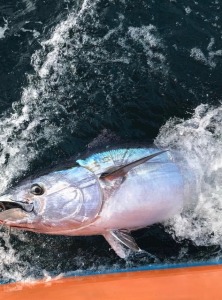
Summary
This is all very exciting for the future of recreational angling in the UK. The CHART programme will provide valuable scientific insight into Bluefin but could also be a stepping-stone to a full-blown recreational fishery.
All those involved are very keen to stress that such programs are appropriately regulated and tightly controlled as is required by ICCAT and fisheries managers worldwide. If a “Wild West” mentality prevails then it will likely result in higher mortality, the potential for dead fish to be washed up on Cornish beaches with gear attached – something which will not endear anglers to the wider public and conservation bodies, many of whom mistakenly think Atlantic bluefins are still critically endangered. It is important that anglers understand that they still cannot rush out and target bluefin in their own boat. The skills, gear and techniques required to successfully target, hook, catch and release some tuna are not something that even people used to catching sharks can boast hence the staged nature of the introduction of a UK fishery.
For more about Atlantic BlueFIn tuna go to our VideoBlog on the subject here
If you want to follow developments over the next few months, then either check out the campaign website www.bluefintuna.co.uk or our website www.saltwaterboatangling.co.uk
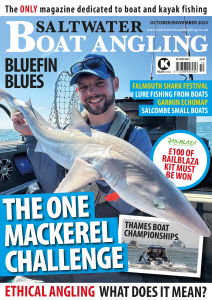


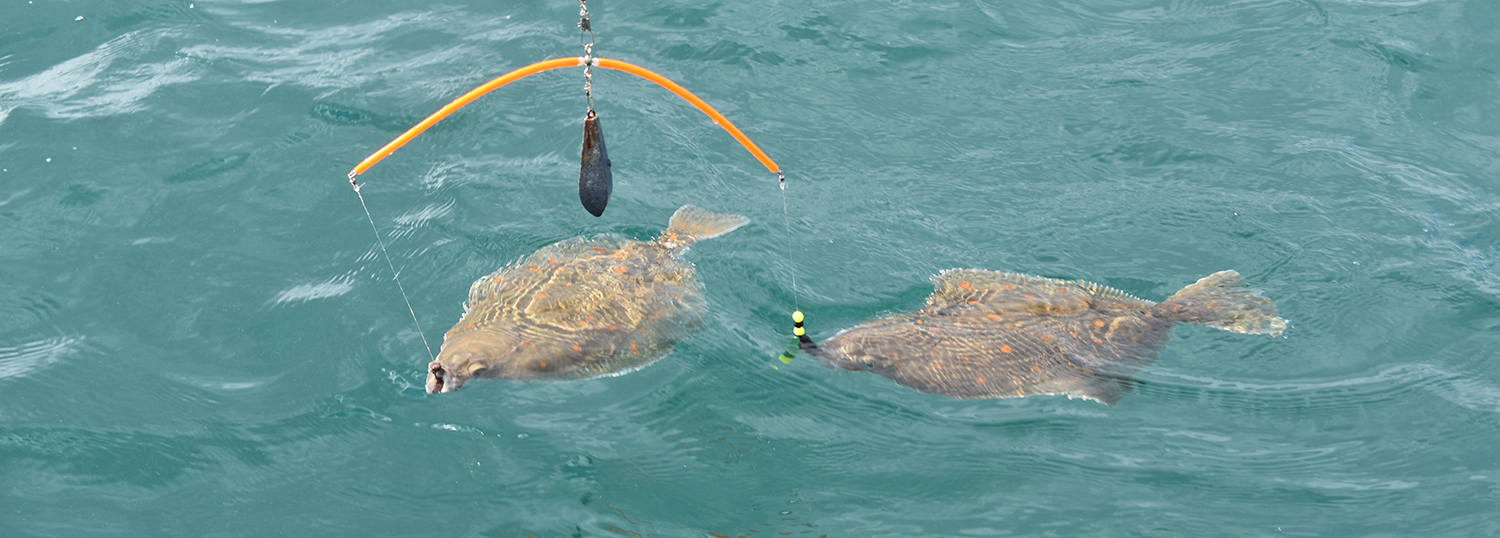

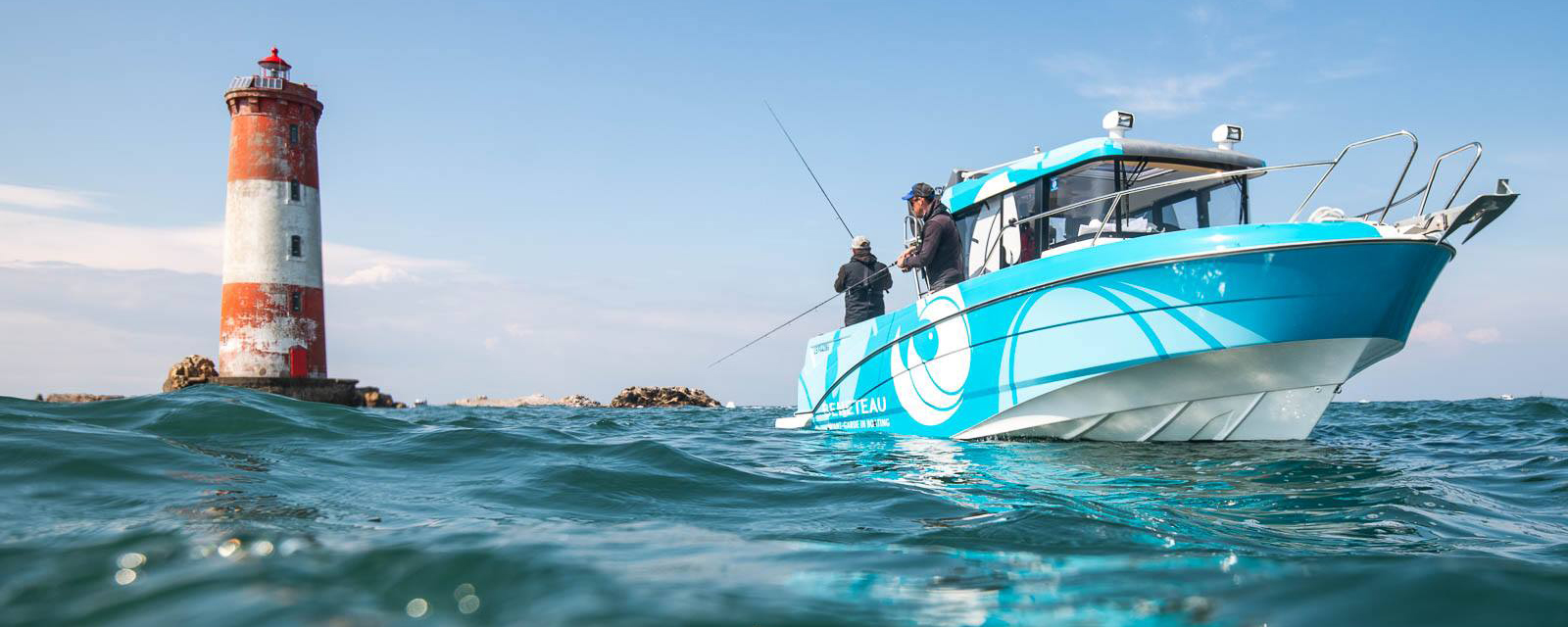


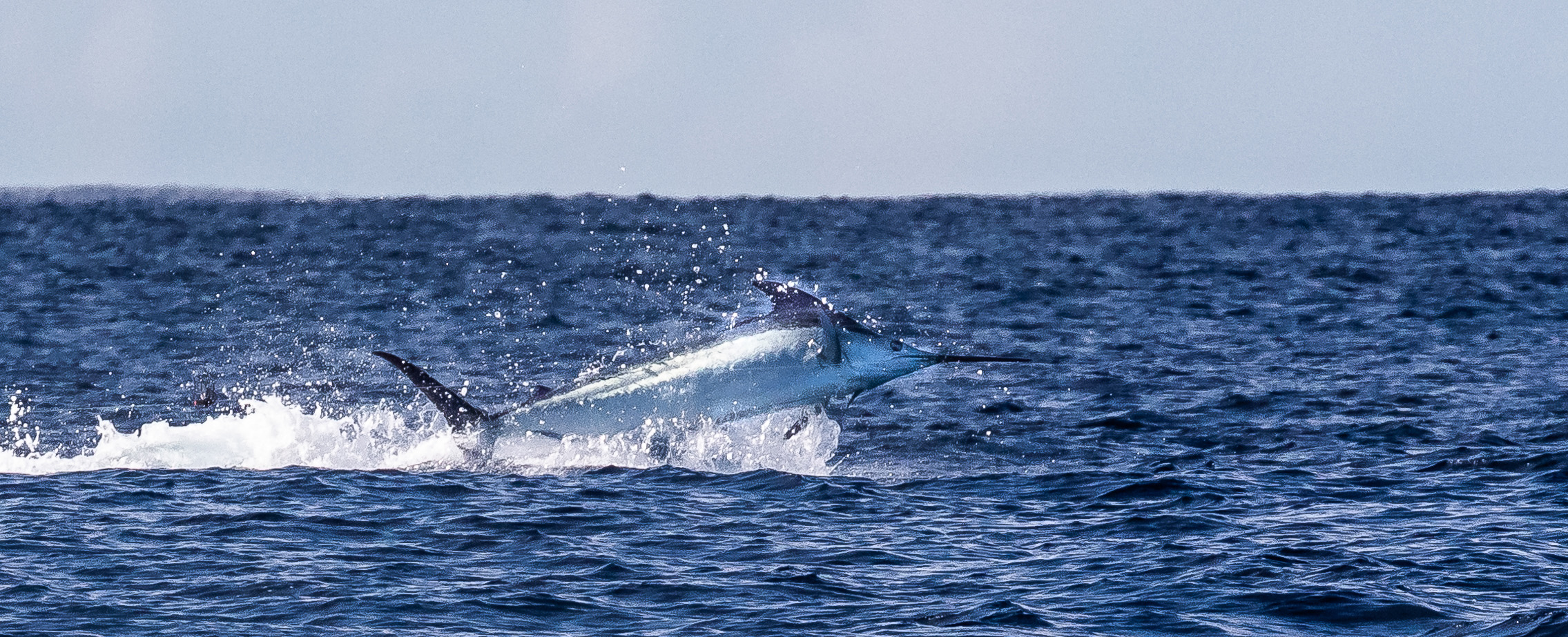
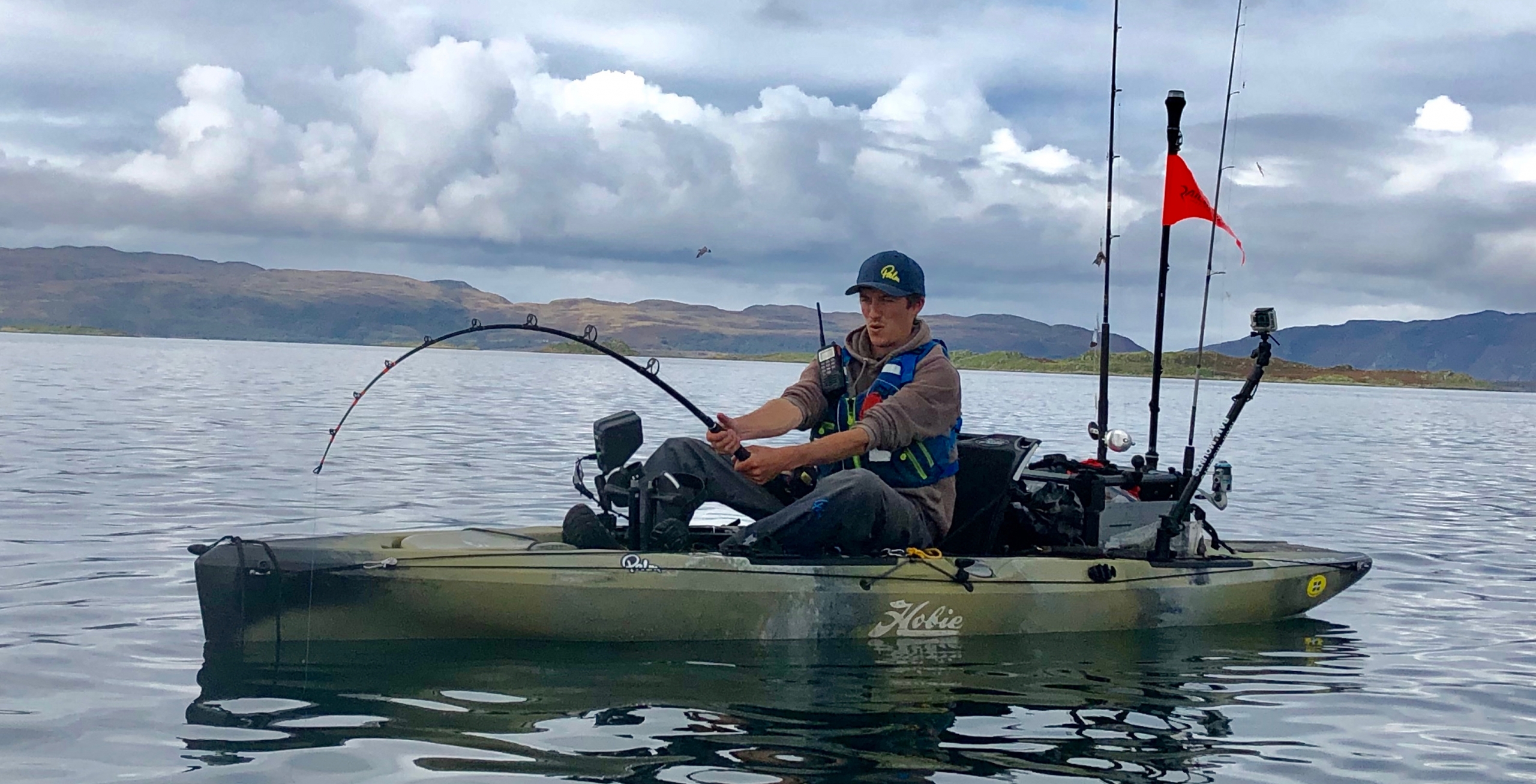


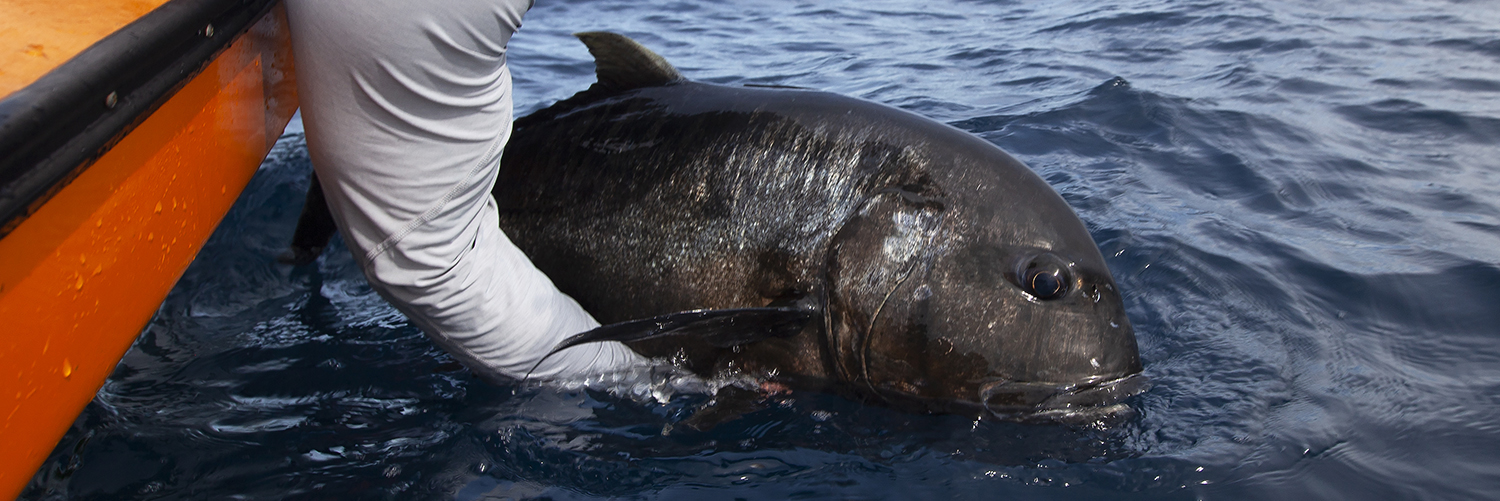
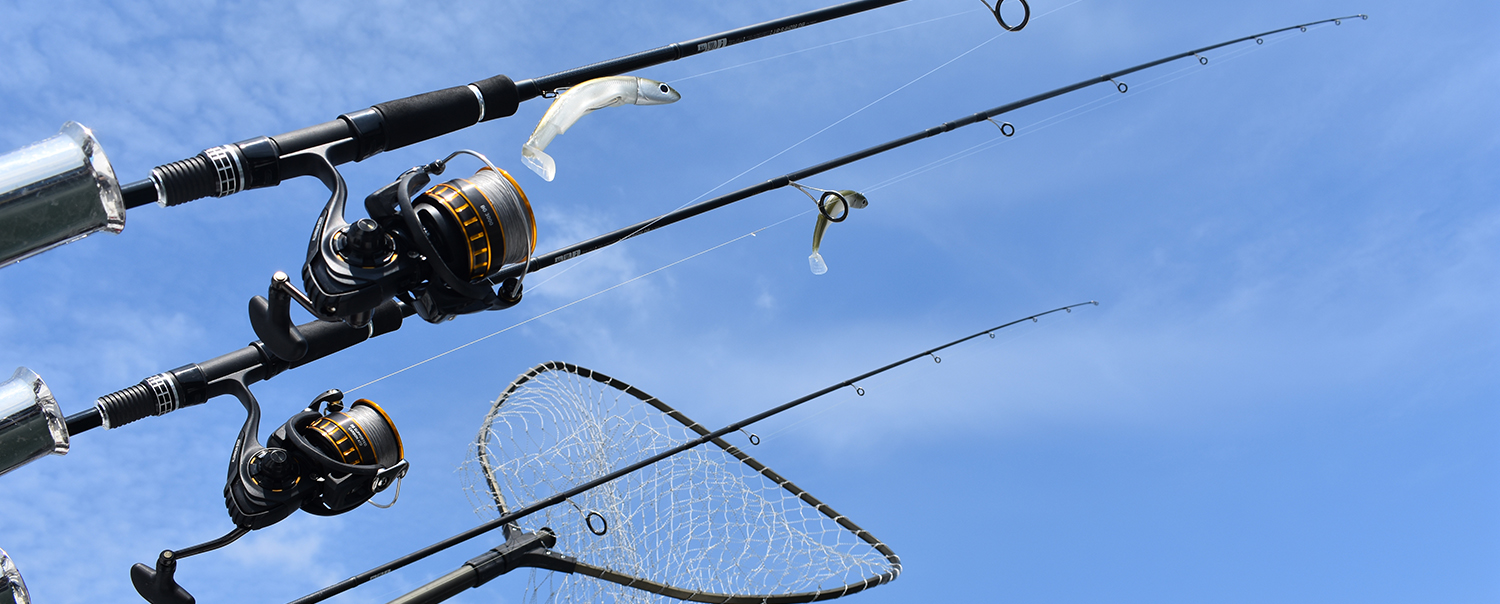
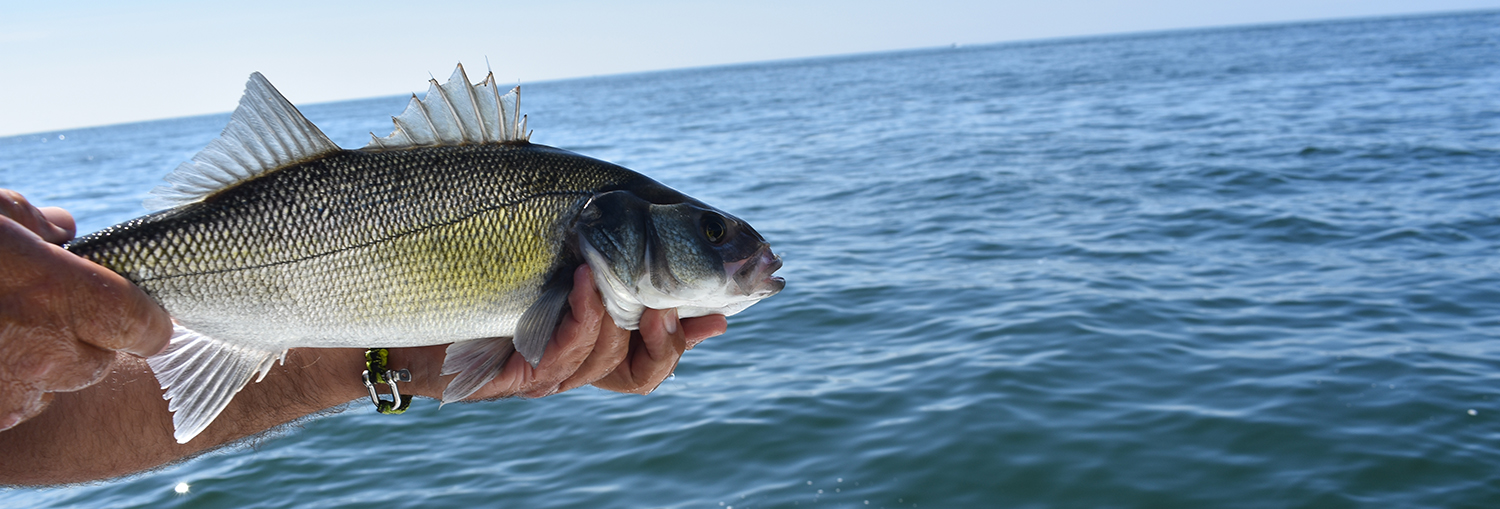


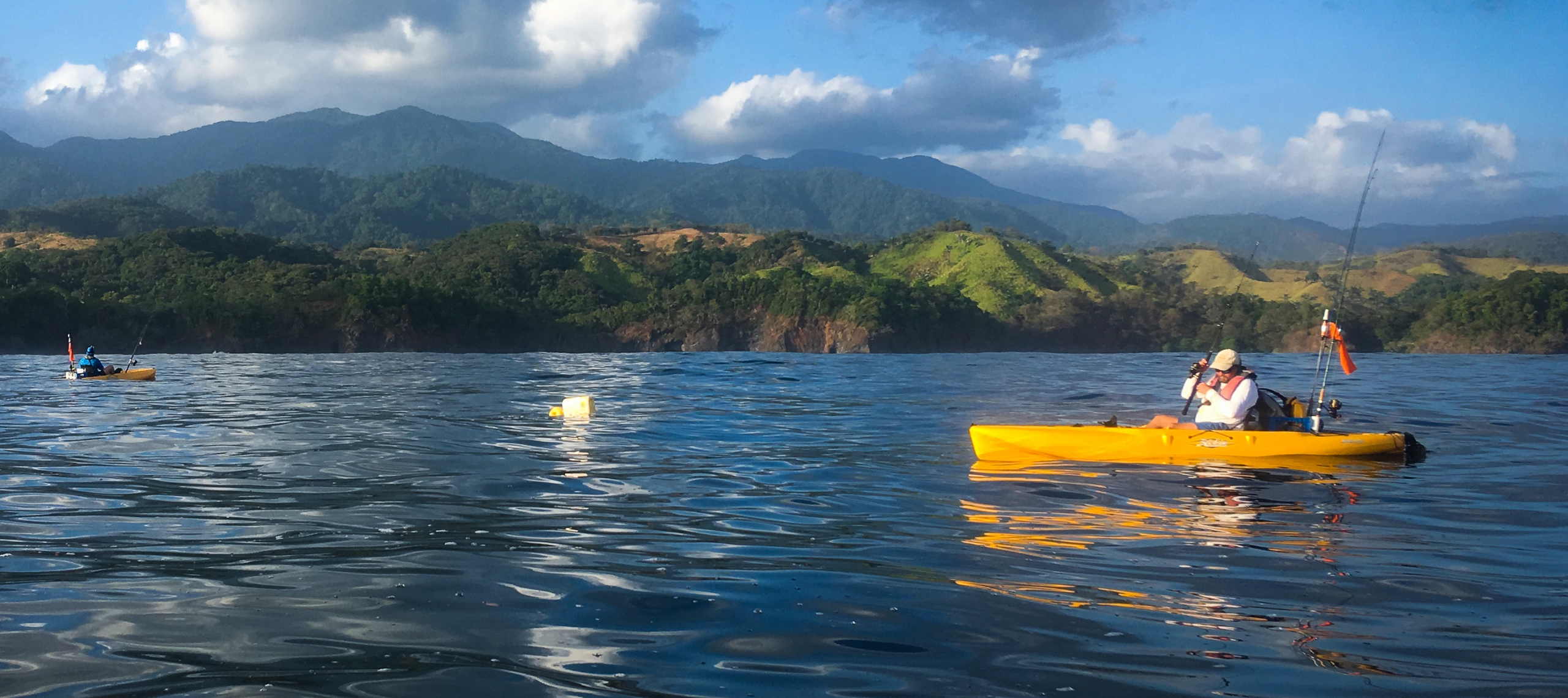
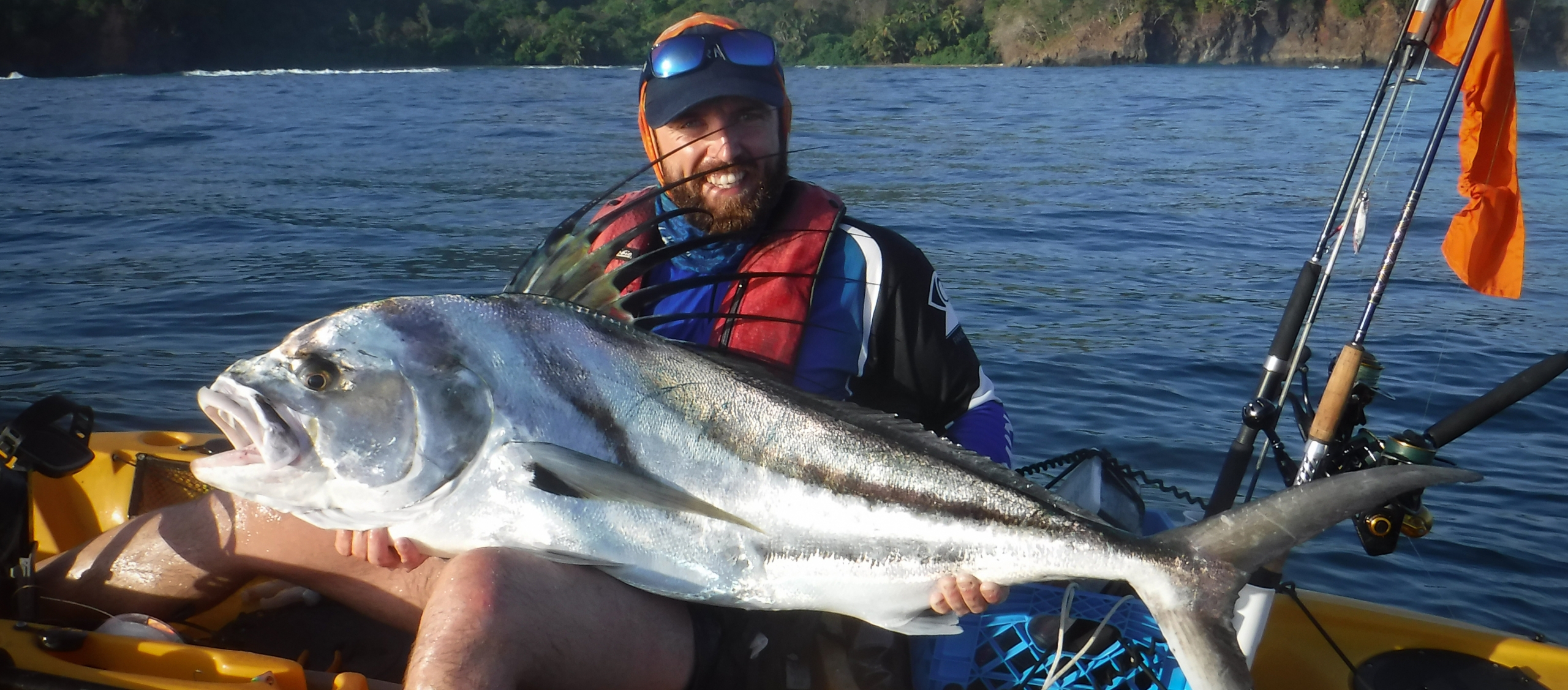
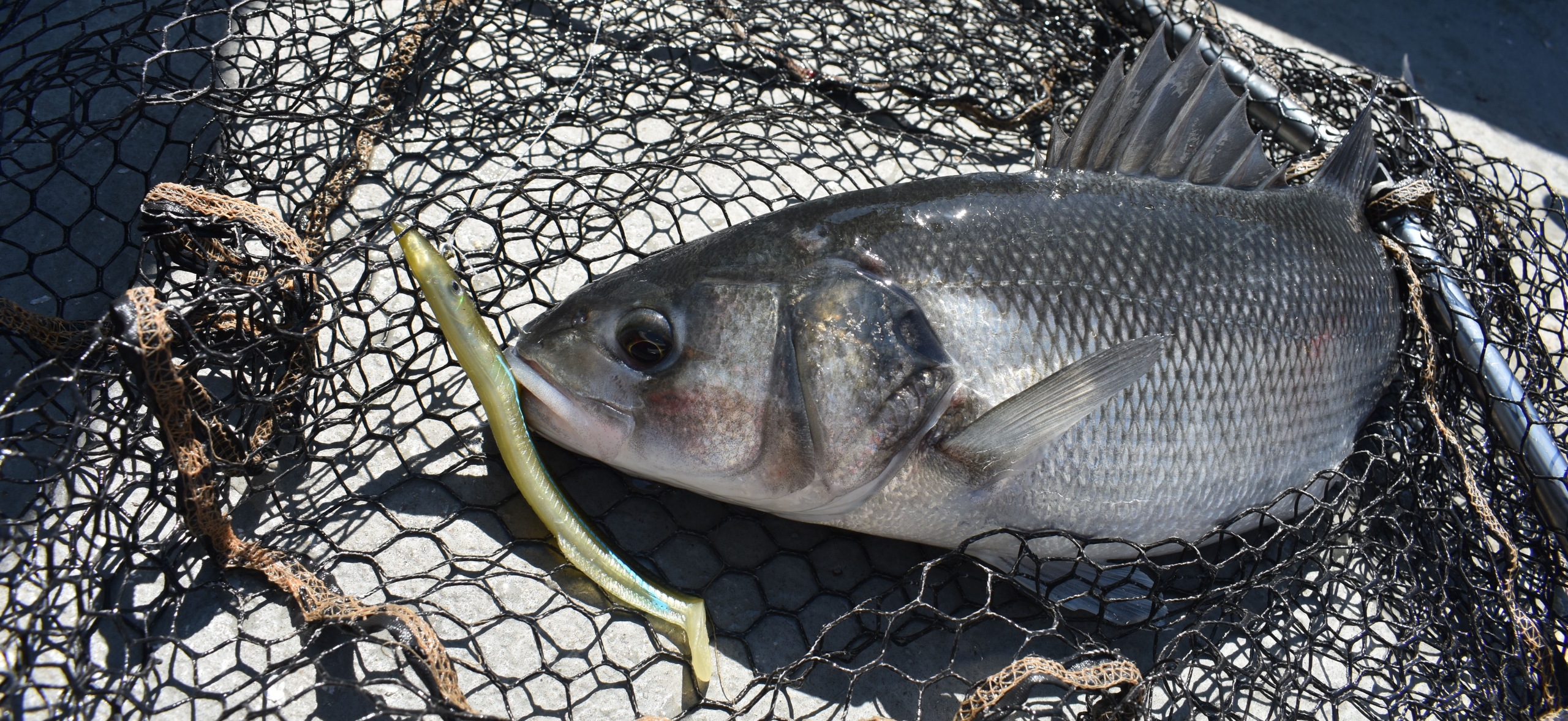
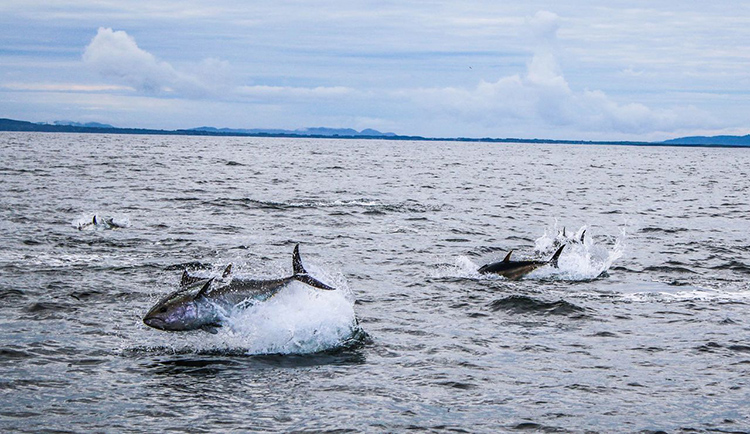
Bringing a tuna in in a hour is rare. Doesn’t anyone watch wicked tuna haha. But what about us small boat owners who hook up to tuna while shark fishing. Can’t we have tags for this as it happens all the time. Cheers.
What happens to the fish that do not recover ? Will they be left in the sea or landed and sold ? If the latter, it will amount to an indirect commercial fishery depending on what happens to the proceeds from the landing sale. Other than for paying angler catch and release revenue there should be no financial gain for landing any tuna which die from not recovering after having been caught by rod and line. It will only be a matter of time before the commercial sector are lobbying hard to be allowed to catch the tuna for killing and selling. The long term biggest socio-economic benefit to coastal communities will be to keep any tuna fishery restricted to catch and release only so preserving the bulk of the stock..
Hi Mark
Any dead fish will be landed but they won’t be sold. They’ll be declared and then handed over to the MMO who will then give them to the scientists attached to the CHART programme to do tests on. There is no chance of them just being dumped over the side either. In a full blown recreational fishery, could that be introduced in 2021 the same will apply. All tuna caught – whether released or landed, will have to be reported.
In future years I’m sure commercials will try and grab some of the allocated quota for themselves to catch and sell. If they succeed in getting any it will probably be a strictly rod and line only fishery within the quota they are allocated. If, as is likely, the recreational quota is half the total allowed (the total quota allocation is only around 50 tonnes) that leave only around 25 tonnes for catch and sell – which is not really viable at the prices the fish will command.
All for catching blue fin for tag and release in UK but alot of the time fish will fight so hard ends up dying even on 130 gear so a quota ought to be given for the unfortunate fish
The CHART tagging programme will be strictly monitored to make sure the skippers on the tagging programme are competent to handle bluefin tuna – this means ensuring the fight lasts no more than an hour, but isn’t over too quickly and that anglers catching the fish are given as much assistance aa possible – also meaning that if the angler is struggling then the skipper can take over at his/her discretion. The quota which has been allocated by ICCAT for the UK will account for any mortality – in other bluefin fisheries a 5% mortality rate is the maximum needed. We anticipate that a CHART tagging programme will have a much lower mortality if the fish are handled correctly.
It would be nice to see what is the difference between the uk doing this and what happens with the eu
The Bluefin tuna quota in the EU is mostly allocated to Portugal, France and Spain and they have their own protocols but they also have a commercial bluefin fishery which is strictly controlled prevent overfishing. We won’t have a commercial fishery in the UK for at least a couple of years.
We have tuna here in n.ireland and I hope we can get a fishery here as well .great to see them here . And as a skipper of a charter boat there is great potential for every angler to enjoy these great fish ,thanks to everyone involved in trying to get this fishery of the ground 👍🤞🤞